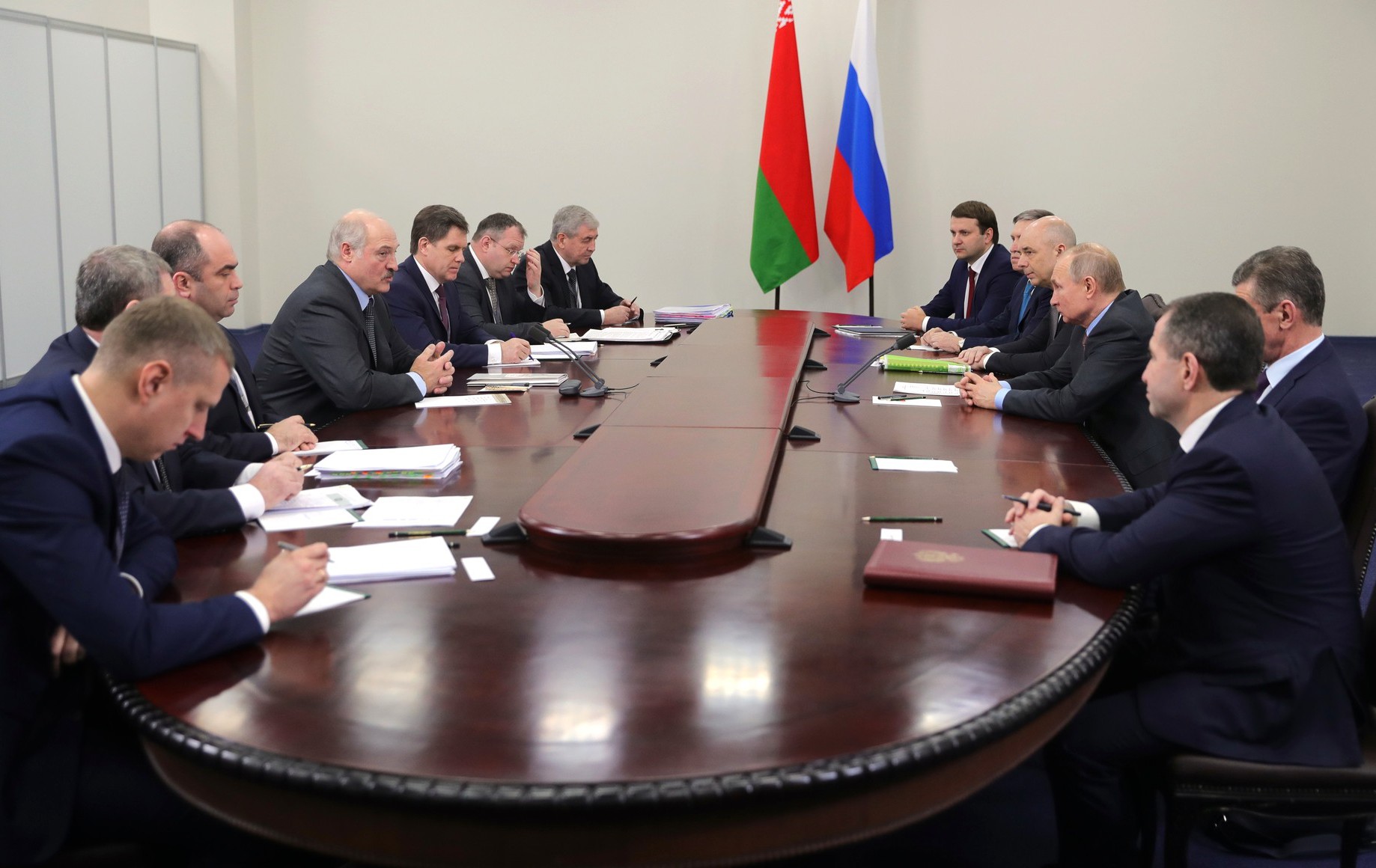Belarus-Russia: a major integration is replaced with several small ones; the terms of oil and gas supplies yet have not been agreed
 The situation has not changed
The situation has not changed

Belarus and Russia have put off talks on deep integration and focused on mapping the road for sectoral integration. A similar process is ongoing within the Eurasian Economic Union. There was no progress in agreeing to natural gas and oil prices for 2020.
Harmonization of trade and technical rules is progressing at a good pace within the EEU. As of July 1st, 2019, EEU technical regulations for liquefied gas and oil took effect and in Belarus – new public procurement rules, which were amended to comply with the EEU requirements. Belarus has achieved a revision of the distribution of import customs duties, however, there is still no unity among the EEU member states regarding the new methodology of such distribution. Meanwhile, the EEU has also agreed on import substitution plans and common approaches to pork and dairy production (prospects for the creation of EEU Producer Associations have been outlined).
According to Belarusian Economy Minister Kruty, Belarus and Russia had agreed to develop up to ten road maps for sectoral integration, which would pave the way to a ‘deeper integration’. These “road maps” would be presented in November 2019. The logic behind this approach is that before moving on to the advanced integration (e.g., the creation of supranational bodies) the parties should advance in the ‘grass-roots’ integration. Accordingly, the issue of ‘deep integration’ has been postponed at least for a year (or two).
The case with the contaminated oil in the Druzhba pipeline is gradually resolving – last week, Naftan refinery started receiving clean Russian oil in agreed volumes and Mazyr Oil Refinery – a week before.
Judging by a Komsomolskaya Pravda’s interview with Belarusian Ambassador to Russia Uladzimir Siamashka, there was still no progress in talks on gas prices or compensation for the tax maneuver.
Subscribe to our newsletter




Situation in Belarus
Constitutional referendum: main consequences


 Video
Video
How to count the political prisoners: are the new criteria needed?


 Video
Video
Paternalism In Decline, Belarusian Euroscepticism, And The Influence Of Russia


 Video
Video












